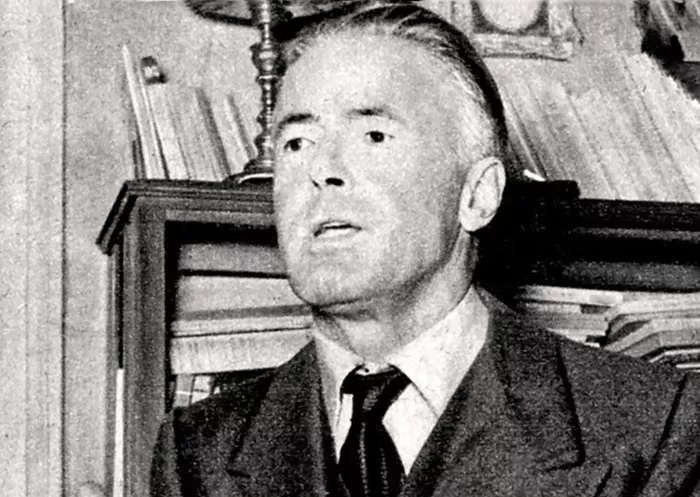Among the many voices that shaped Italian poetry in the 20th century, Ugo Betti stands out for his unique approach to language, form, and philosophical inquiry. An Italian poet and dramatist, Betti’s work reflects the complexity of human nature and the tensions of his time. His contributions offer valuable insight into the evolution of Italian poetry during an era of great social and political upheaval.
Early Life and Influences
Born in 1892, Ugo Betti was part of a generation that experienced the aftermath of the 19th century and the seismic changes brought by the World Wars. Italian poetry in this period was marked by a rich diversity of styles and themes. The early 20th century saw a transition from the late Romanticism of the 19th century to new modernist approaches. Poets grappled with the demands of modern life, reflecting on identity, morality, and the role of art.
Betti’s early education and personal experiences influenced his literary output. His exposure to law and philosophy informed much of his poetic and dramatic work, adding depth to his reflections on justice, guilt, and existential doubt. These themes were common among many 20th century Italian poets, but Betti’s treatment was distinctive due to his intertwining of poetry and theatre.
Literary Style and Themes
Italian poetry in the 20th century moved away from purely lyrical expression to more complex forms involving narrative and dramatic elements. Betti’s poetry reflects this shift. His language is precise and controlled, often stripped of ornamentation, allowing the ideas to resonate clearly.
Central themes in Betti’s poetry include the search for truth, the nature of evil, and the human struggle for redemption. Unlike some of his contemporaries who embraced radical experimentation, Betti maintained a formal elegance that tied him to classical Italian poetic traditions while still addressing modern concerns.
His poetic works often blur the line between poetry and drama, making his contributions significant not only in the realm of poetry but also in Italian theatre. This dual role enriches the understanding of his place in the 20th century Italian literature.
Comparison with Contemporary Italian Poets
To appreciate Betti’s role among 20th century Italian poets, it is useful to consider the work of some of his contemporaries. Poets such as Giuseppe Ungaretti, Eugenio Montale, and Salvatore Quasimodo defined Italian poetry with their modernist and hermetic styles.
Giuseppe Ungaretti, for example, was known for his minimalist and intense poetry, often focusing on themes of war and suffering. Ungaretti’s poems, marked by brevity and fragmented language, contrast with Betti’s more structured and philosophical style. Ungaretti sought to capture raw emotion and immediate experience, while Betti leaned towards intellectual exploration and moral questioning.
Eugenio Montale’s poetry introduced complex symbolism and a skeptical view of reality. Like Betti, Montale was concerned with existential questions, but Montale’s work is often more elliptical and less formally traditional. Montale’s poetry is sometimes seen as a bridge between classical Italian lyricism and post-war existentialism, whereas Betti’s poetic voice remained tied to his dramatic sensibilities.
Salvatore Quasimodo shared with Betti a concern for human suffering and ethical dilemmas. However, Quasimodo’s poetry was more directly influenced by hermeticism—a style marked by obscure imagery and a focus on the ineffable—while Betti’s poetry tended to be more accessible, grounded in narrative and clear moral inquiry.
In this way, Betti’s work offers a unique perspective among 20th century Italian poets, combining classical form with modern thematic concerns. His poetry and plays reveal a mind deeply engaged with the challenges of his era, both artistically and ethically.
Betti’s Contribution to Italian Poetry and Theater
While Ugo Betti’s reputation rests heavily on his dramatic works, his poetry remains an essential part of his literary legacy. His dual talents enriched Italian poetry, showing how poetic language can serve philosophical and theatrical purposes.
Italian poetry in the 20th century was often linked to broader artistic movements, including theatre, painting, and philosophy. Betti’s work exemplifies this interdisciplinary spirit. His poetic exploration of guilt, justice, and human frailty resonates through his plays, creating a body of work that crosses genre boundaries.
Betti’s influence extended to post-war Italian poetry and theatre. His thoughtful treatment of moral issues anticipated themes that would become central in later Italian literature. Moreover, his ability to balance traditional form with modern ideas made him a model for poets and dramatists who sought to renew Italian poetry without abandoning its heritage.
Historical Context and the Impact on Betti’s Work
The historical events of the early to mid-20th century—World War I, Fascism, World War II, and the post-war reconstruction—deeply influenced Italian poetry and Betti’s writing. The turbulent times challenged poets to respond to violence, loss, and the search for meaning.
Betti’s poetry reflects a profound awareness of these crises. His exploration of guilt and justice can be read as a response to the moral collapse witnessed during Fascism and war. Like other 20th century Italian poets, he wrestled with the role of the artist in times of political oppression.
Unlike some poets who adopted overtly political stances, Betti’s poetry approached these issues through ethical and philosophical questions, often veiled in allegory. This approach allowed his work to endure beyond immediate historical circumstances, offering timeless reflections on human nature.
Conclusion
Today, Ugo Betti is remembered as a key figure who bridged poetry and theater in Italian literature. His work exemplifies the richness of 20th century Italian poetry, showing how poets navigated tradition and innovation.
Betti’s poetry continues to be studied for its moral depth and artistic precision. Alongside other Italian poets of the 20th century, he contributed to a vibrant literary tradition that responded to modern challenges with creativity and insight.
The study of Betti and his contemporaries provide valuable perspectives on the development of Italian poetry throughout the century. Their works remain relevant for understanding how literature can engage with history, philosophy, and the human condition.

